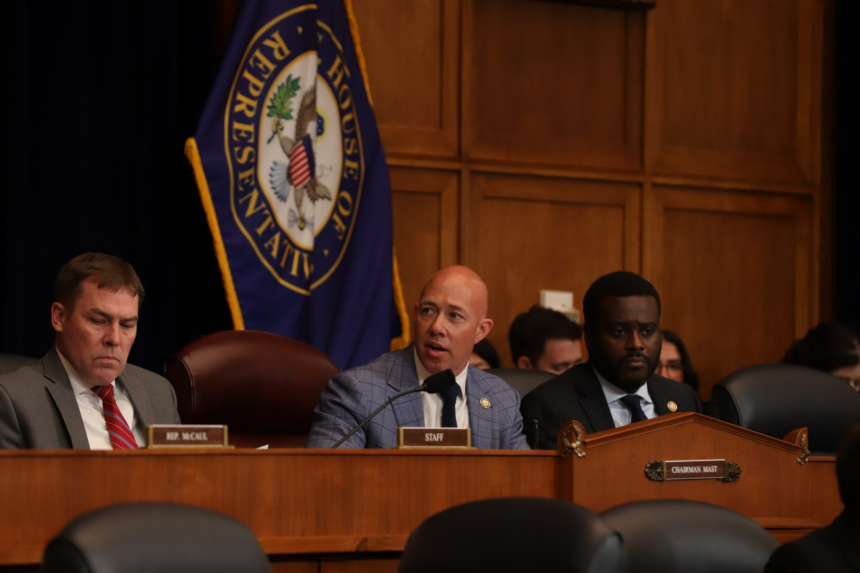RASC News Agency: Congressman Brian Mast, Chair of the House Foreign Affairs Subcommittee, has voiced strong support for a newly passed U.S. House bill aimed at cutting off all potential channels through which the Taliban may access American-funded humanitarian aid. dollars by a known terrorist entity. The bill officially titled “No Taxpayer Funding for Terrorists Act” was overwhelmingly approved in the House of Representatives and now awaits deliberation in the Senate. If enacted, it would mandate the U.S. State Department to establish strict safeguards to ensure that no part of U.S. humanitarian assistance finds its way into Taliban coffers whether directly, indirectly, or through compromised international NGOs.
In a forceful statement, Mast declared:
“This legislation guarantees that not a single dollar not even one rupiya of American taxpayers’ money ends up supporting the Taliban. No back doors. No loopholes. No complicity through failed foreign governments or shady non-governmental actors. If you are funneling funds to the Taliban, you are enabling terrorism and turning your back on American values.” The bill reflects mounting frustration in Washington with the Taliban’s ability to manipulate the aid infrastructure for its own benefit, often by levying informal taxes, coercing humanitarian agencies, or embedding loyalists within aid distribution chains. Despite being an internationally unrecognized and terrorist-designated regime, the Taliban has exploited the humanitarian urgency in Afghanistan to maintain political leverage and domestic control.
According to a May 2024 report from the Special Inspector General for Afghanistan Reconstruction (SIGAR), at least $10 million of U.S. aid was indirectly captured by the Taliban in the form of taxes and administrative fees an alarming trend that has raised bipartisan concern in Congress. “That’s $10 million too much,” said Mast. “That money was meant to feed hungry families, not finance a brutal regime that flogs women in public and shoots dissenters in the streets.” Some members of Congress have warned that the actual figure may be far higher, with estimates of up to $40 million per week being siphoned through indirect channels under Taliban rule. While these numbers remain unverified, they underscore the widespread belief that the Taliban is systematically exploiting international goodwill to reinforce its authoritarian grip.
Under the new law, the State Department will also be required to produce a detailed report identifying foreign governments and institutions that have provided financial assistance to the Taliban since their return to power in August 2021. The aim is to pressure international actors to suspend all forms of cooperation that empower the group. “The Taliban has mastered the art of global deception,” said a senior policy advisor. “They’ve used the façade of humanitarian coordination to entrench their dictatorship and expand gender apartheid. This legislation sends a clear message: the world will not bankroll oppression.”
Critics of the bill, including some humanitarian watchdogs, have raised concerns that blanket aid restrictions could further harm ordinary Afghanistani citizens who are already suffering from extreme poverty, famine, and political repression. However, lawmakers supporting the bill emphasize that alternative aid delivery mechanisms must be pursued ones that entirely bypass Taliban interference. “Let’s be clear: denying terrorists access to funding does not mean denying the people of Afghanistan a future,” Mast argued. “It means ensuring our aid reaches the people not the jailers who keep them in chains.”
The passage of this legislation marks a significant turning point in U.S. policy towards Taliban-controlled Afghanistan. It also signals growing congressional resolve to adopt a zero-tolerance approach toward any regime that weaponizes humanitarian need for political dominance while systematically erasing civil rights, suppressing women, and terrorizing minority communities.






